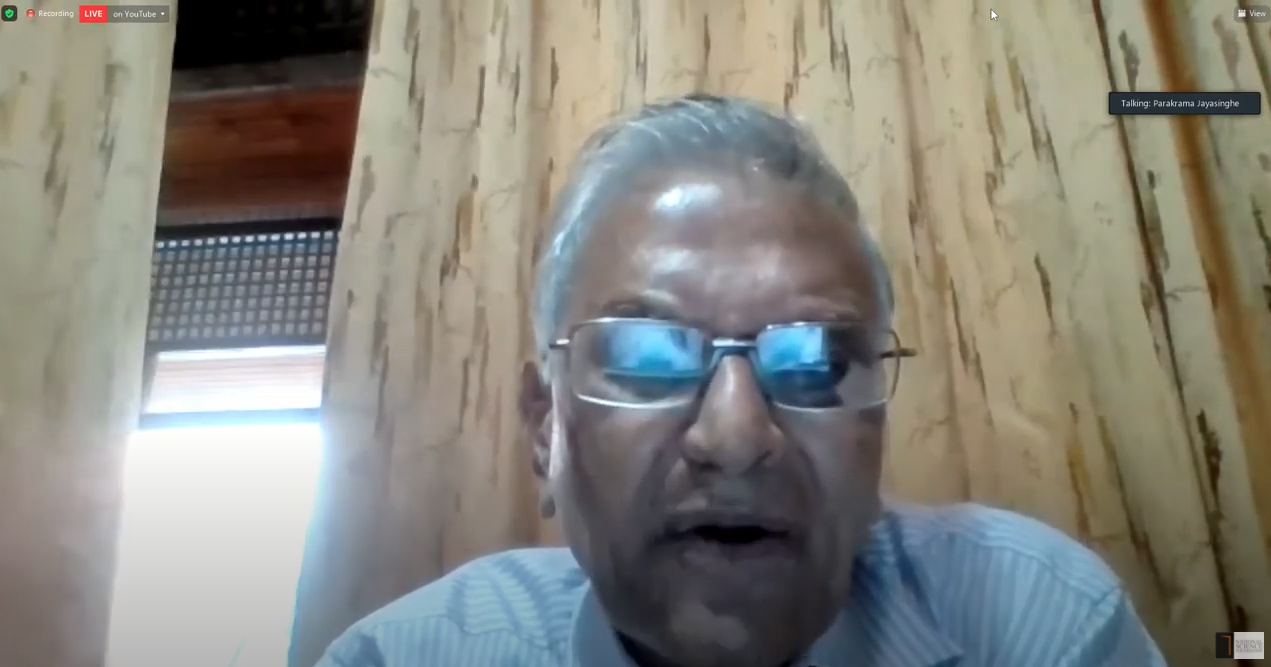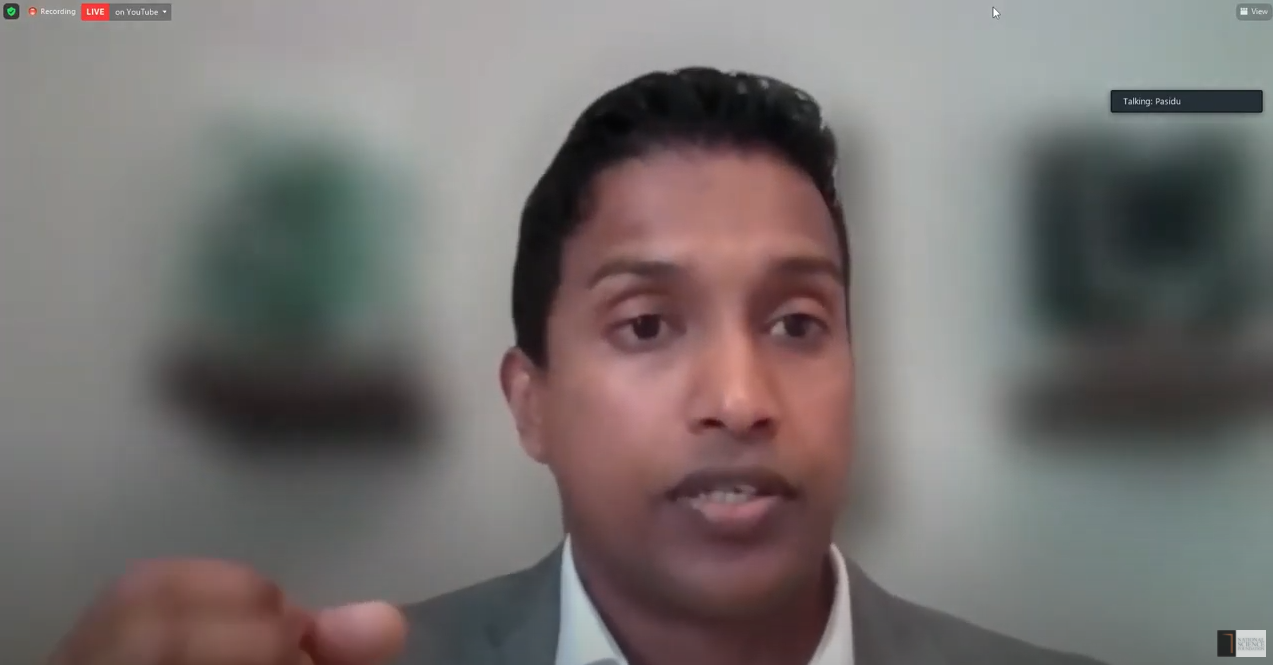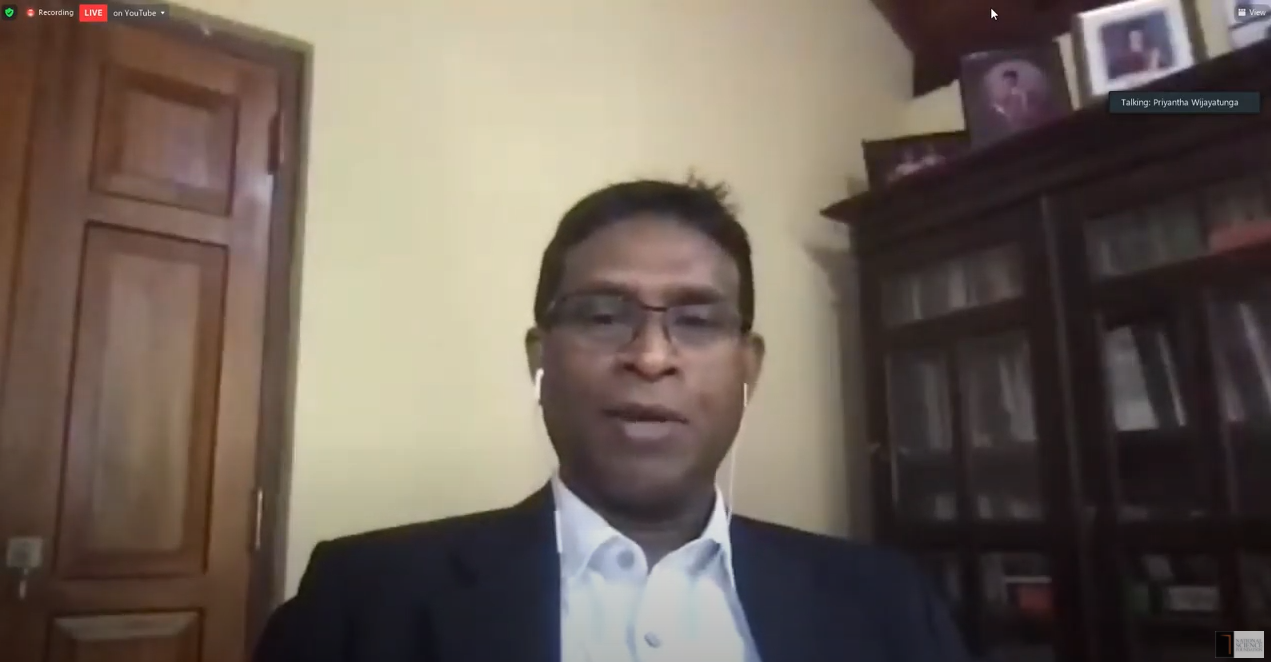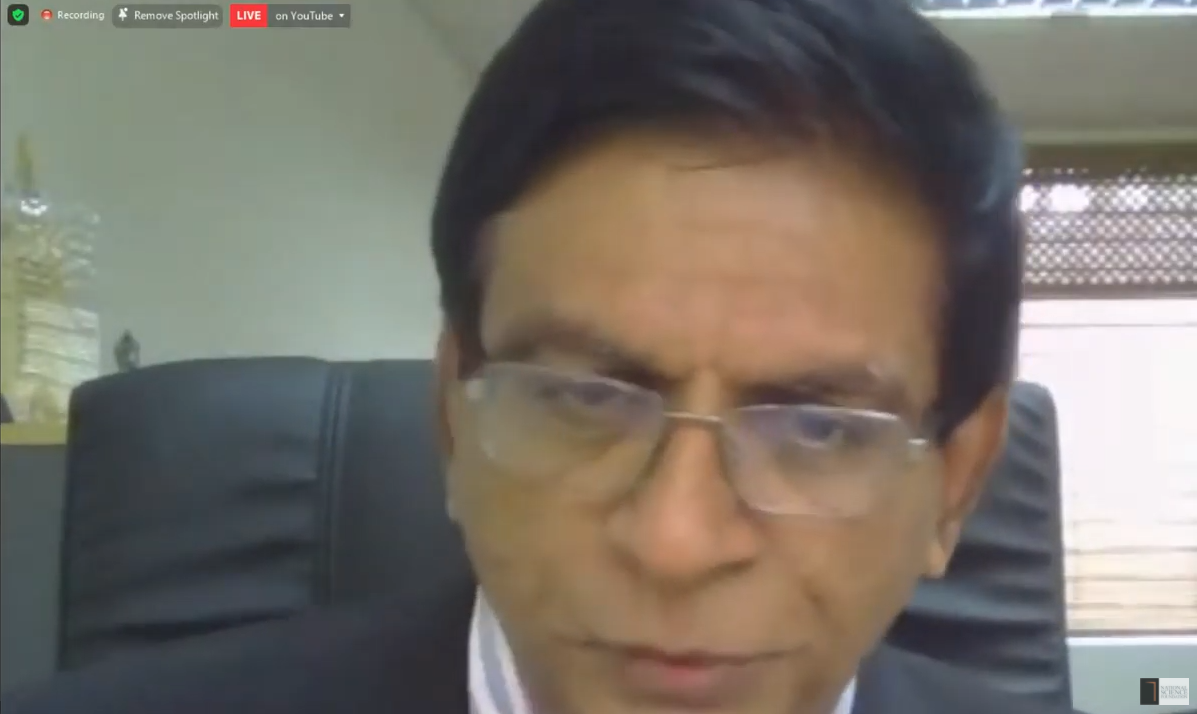With this backdrop, National Science Foundation, Sri Lanka (NSF) took the initiative and joined hands with the National Academy of Sciences Sri Lanka (NASSL), Library and Publications Committee of the Institution of Engineers Sri Lanka (IESL) and Section C of the Sri Lanka Association for the Advancement of Science (SLAAS) to organize a webinar on ‘Shift from Fossil Fuels to Renewables: A Pragmatic and Holistic Approach’ which was held on 27th October from 1.00 p.m. to 3.30 p.m. (Sri Lanka time).
The webinar drew upon the knowledge, experience and expertise of internationally renowned Sri Lankan scientists and technologists at home and abroad. Expatriate Sri Lankan scientist Prof. Ravi Silva, a Distinguished Professor and Director of the Advanced Technology Institute (ATI) at the University of Surrey, UK, who also heads the interdisciplinary Nano-Electronics Centre (NEC), and was recently awarded a CBE, delivered the keynote speech. It was followed by a presentation titled ‘Towards energy self-sufficiency in Sri Lanka: Prospects and Challenges’ delivered by another eminent expatriate Sri Lankan scientist, Dr Priyantha Wijayatunga who is the Director of the South Asia Energy Division of the Asian Development Bank (ADB), Philippines. The third presentation of the webinar was delivered by Eng. Parakrama Jayasinghe, who is the President of the Bioenergy Association of Sri Lanka and a Fellow of the IESL, and it was about ‘Harnessing renewable energy resources in Sri Lanka: A pragmatic approach’. The final presentation was on ‘Making Sri Lanka a leader in smart energy storage technology in the region’ and delivered by Engineer Pasidu Pallawela, a distinguished Sri Lankan engineering professional in the UK, who is the founder and the Chairman of the StorTera Ltd. (UK) and StorLion Ltd. (Sri Lanka).
At this webinar, several key points such as the following were highlighted. Solar and wind will be the cheapest energy sources in the future. Sri Lanka has a high potential to harness renewable energy, in particular solar power. Ten solar parks, 100 Mw each will be able to cater for the new energy demand for the next 10 years. Also highlighted was the importance of exploring the potential of having floating solar farms on reservoirs. However, if we continue to burn fossil fuels, compounding effects of climate change will result in the rise in temperature and sea level and Sri Lanka is relatively more prone to consequences of the same.
The island has a national energy policy but needs a concrete action plan with time-bound milestones to achieve targets. As per the national vision, 70 % electricity generation is to be accomplished from renewable energy by 2030. Consistent tariff policies and other fiscal instruments towards renewable energy will attract foreign investors; however, this should not create entry barriers to local investors.
Also, financial opportunities are available from Asian Development Bank (ADB) for renewable energy initiatives with innovative technology. It was highlighted that ADB's 2021 Energy Policy formalizes ADB’s current practice of not financing new coal-fired power and heating plants, and promotes the adoption of cleaner fuel sources including renewable energy. On the other hand, Sri Lanka has the human resources and the proven technological capacity to embark on renewable energy. It was observed that even though biomass and dendro power have a good potential for fostering the rural sector economy and inclusive development, it is yet to be included in the national level roadmap towards renewable energy.
Smart energy storage technology has come into the equation and has many applications and benefits in terms of harnessing renewable energy. Sri Lanka is blessed with minerals (i.e. vein graphite, ilmenite and apatite, etc.) and after value addition, the same can be used as raw materials for battery manufacturing. Graphene Oxide has already been developed and exploring further developments will open up new avenues to innovate competitive raw materials for energy storage applications based on Sri Lanka’s unique mineral resources. In the light of the above, all stakeholders were exhorted to work together towards a pragmatic roadmap to make Sri Lanka an energy independent and net-zero carbon nation.
Livestreaming of this webinar was done at the YouTube channels of both the NSF and IESL and the recordings of same will also be available in both sites.
The webinar recording at the NSF YouTube channel could be accessed through the following link:






